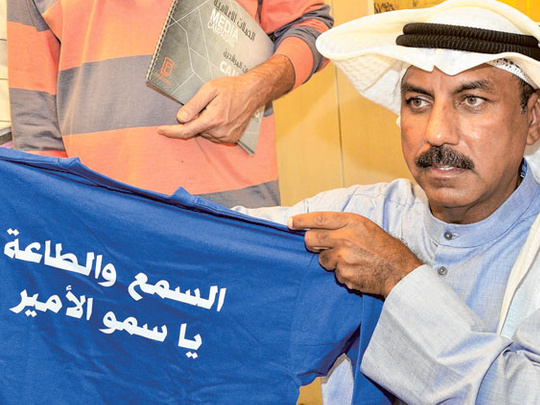
Kuwait: Kuwaiti opposition groups plan to unite in protest against new voting rules at a rally on Sunday, a politician said, a week after authorities broke up an unauthorised demonstration.
Kuwait tolerates more dissent than some other Gulf states but in recent weeks police have used tear gas and smoke bombs to disperse thousands of Kuwaitis protesting ahead of a December 1 election.
Opposition leaders say the amendments passed by decree last month are an attempt to give pro-government candidates an advantage in the poll, which they say they will boycott.
The frequent rallies usually take place peacefully in Erada Square, a designated protest area opposite parliament, but some have spread to the streets beyond and resulted in clashes. The government says demonstrations outside designated areas or without permits are illegal.
Opposition groups plan “a large rally” in the square on November 11 to mark the 50th anniversary of the constitution, former opposition lawmaker Waleed Al Tabtabai wrote on Twitter.
Opposition lawmakers include Islamists, tribal MPs and liberals who have joined together with youth groups in protests.
After meeting four former MPs on Sunday, Kuwait’s ruler Shaikh Sabah Al Ahmad Al Sabah reportedly said that rallies would be allowed if permission was sought for them. However the emir said on Tuesday there would be no leniency towards threats to “the security of the homeland”.
“Today we are required to choose between the rule of law and the constitution and stick to it, to the road of safety, or to pursue chaos and infringe on the powers of the responsible constitutional authorities,” the emir said.
Protesters in Kuwait, an Opec member state and a US ally, have not called for radical political change, and the country has avoided the mass popular unrest experienced in some other Arab states.
Rallies have focused on local issues such as the voting rules and reforms, such as allowing an elected government, more political accountability or for the creation of political parties, which are banned.
The emir has said the changes aim to preserve national unity.










